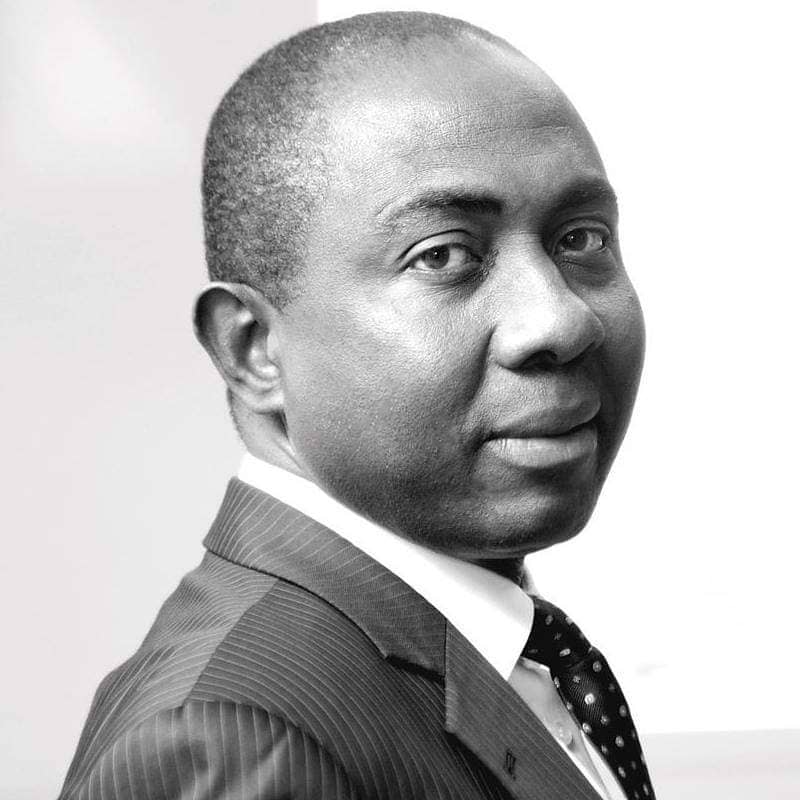By AKIN OLANIYAN

The Nigerian media has a reputation for being rather ‘loud.’ Historically acknowledged as one of the most robust in Africa, the media has never shied away from any form of discourse no matter how controversial. The likes of West Africa Pilot, Lagos Weekly Record, The News and Tell were renowned for critical and investigative reporting that unsettled administrations. In fact, such was the fearless and controversial nature of the editorial approach of the Lagos Weekly Record, that John Jackson, who founded the paper in 1890 was said to have favoured ‘pungent criticism, expressed in lengthy editorials,” which bordered on the “edge of sedition”.
That’s a feature that seems to appeal to Nigerians of my generation, the most open-minded of whom grew up either waking up early to listen to the British Broadcasting Corporation (BBC) or stopping by at newsstands to read major newspapers for a token. In those days, you would almost certainly know someone who could afford to buy newspapers and through whom you had access to copies that you then spent time reading. Such was the richness of the content in those days that I saved up to be able to buy the Newswatch or the Guardian to be able to read the likes of Dele Giwa, Ray Ekpu, Yakubu Mohammed and Olatunji Dare.
That tradition – of critical and sometimes, adversarial and controversial journalism – might be in retreat but the Nigerian media remains as boisterous as ever. Or it seems. Digital transformation has limited the impact of some legacy newspapers, with those who failed to embrace new media formats being the worst hit. The emergence of digital-born newspapers like Sahara Reporters, Premium Times and The Cable with the courage for aggressive reporting of the corporate and political elite has shaken up the industry in no small measure, the result being that new media formats are appealing to and serving Nigeria’s youthful population more effectively. The online traffic and digital communities commanded by these newspapers in their relatively short history might still be slightly behind those of some legacy organisations like the Punch and Vanguard; but taken together, the progress made by the digital-born newspapers confirm what we already know – that Nigerians are consuming media in new ways.
READ ALSO: INTERVIEW: How I’m democratizing film making using AI –Banwo
In a country where over 75 per cent of the population is under 35, the appetite for either print editions of newspaper or the kind of stories and aggressive news reporting that established West Africa Pilot, Lagos Weekly Record, The News and Tell may have been lost but not the interest in staying up-to-date with information, albeit of a different kind. If the historical appeal of the rigorous debates and long-form articles of the political nature in the media ended with the West Africa Pilot, Lagos Weekly Record, The News and Tell, another form of truly engaging media content driven by storytelling is finding a home in podcasting. Thanks to the noise surrounding Nedu and The Honest Bunch Podcast, we at least know that young Nigerians can stay engaged for reasonable time if their kind of content is being served. It is difficult to ignore the embarrassing personal details around Nedu, his estranged friend, Martins Vincent Otse, a.k.a VeryDarMman, but I make an appeal. Please ignore those for the moment as we try to deal with the more serious issues here.
The concerns about the content and responsibility aside, my generation is right to worry about the long-time impact on a Gen Z that looks like it lacks the media literacy and a well-developed ability to critically filter what they hear from podcasts promoted by clout chasers.
Podcasting emerged from the shadows of radio in the early 2000s, aided by new technologies and digital cultures including MP3 players, free or low-cost audio production software, blogging. What started as amateur radio that allows producers to create content with some level of autonomy than what traditional broadcasting allowed expanded rapidly as listeners embraced the freedom to listen to content that suits their preferences. In Nigerian, that format has benefited from three major factors, two of which help to explain why the recent noise around Nedu and his friends is symptomatic of more worrying issues about the media consumption patterns of Nigerian youths.
First, the telecoms reform under President Olusegun meant more Nigerians had access to relatively more affordable data and smartphones. As Nigeria’s telecoms reform was mobile-driven, more people started to consume media on the go. That flexibility and accessibility, allowing users to listen at their convenience was sure to benefit podcasting in the long run; radio being more structured around programming and scheduling, and therefore more restrictive.
Second, when it started a decade and a half ago, Nigerian podcasts used to be drab not because the producers were less creative. Today’s podcast producers are benefiting from a global trend of interests in video and the surging interest of Gen Zs in media consumption. On the one hand, the short video clips from episodes are being used as spreadable media across platforms like Twitter, TikTok, and Instagram, to drive traffic to YouTube. On the other, the increasing audience engagement on YouTube and the revenue from monetisation on the platform is allowing podcast producers to invest more in studio and equipment that improves quality.
Three, podcasting has also grown on the back of the relatively lower entry barriers than what would have been necessary in broadcasting, allowing content creators and producers to cater to a young audience eager for uncensored conversations. Looking at the lower entry barrier, the increasing participation of micro-celebrities in podcasting – something we began to notice just a few years back – makes sense, especially given their penchant for clout chasing.
As we have seen with the digital-born newspapers, the relatively lower entry barriers and the attraction of Gen Z to the format could either be a blessing or a curse. The obvious arguments for or against the podcasting we are now being served borders on their tendency to push the ethical boundaries of what is acceptable as good journalism. If podcasting had gone under radar in its nascent history, the most recent controversies around some of the more popular ones are suddenly forcing us to sit up and ask questions about content, responsibility, and their impact.
While many podcasts serve as educational and cultural platforms, and could therefore be used to reach a generation that lacks the discipline to maintain reasonable focus on anything serious, we have enough reasons to be worried. It is all right for podcasters to allow bold and personal stories but sensationalism should have its limits, even in a segment that is still a tiny part of the media ecosystem. Given the potential of this format to become a cultural influence especially among the young folks, we have to ask whether those viral moments designed to shock serve any purpose aside from boosting ratings. As we have seen with some recent developments, ‘sensational podcasting’ can produce grave consequences.
One example is the reported death of one guest on actress Biola Adebayo’s podcast, “Talk to B.” The young woman who appeared on that programme as expected on a podcast shared personal struggles, including unconventional sexual experiences but faced a backlash from a digital mob that hounded her until she was driven to commit suicide. Her experience – never mind the fact that the producers later claimed she faked her death – should be a reminder to content producers that podcasting goes beyond the ratings and the monetisation. In this case, would it have changed anything if the producer had the sense to arrange professional counselling for the guest? We may not know the answer but the point is – a young life ended after being hosted on a podcast where she allowed herself to be vulnerable. Nedu’s ouster from “The Honest Bunch Podcast” after comedian Deeone appeared as a guest and made those wild claims about the sexual orientation of VeryDarkMan, may yet cost him more than his job. The ‘noise’ from that edition and the embarrassment attached have hurt his reputation but the impact on his mental strength could be far more damaging.
The two examples raise an obvious question: as podcasting increases in popularity, where do we draw the line between open dialogue and harmful content. True, digital culture thrives on controversy and clout chasers are using the well-tested format to drive traffic to their podcasts. The danger as usual is that the young folks who are the most active listeners are not passive media consumers. The concerns about the content and responsibility aside, my generation is right to worry about the long-time impact on a Gen Z that looks like it lacks the media literacy and a well-developed ability to critically filter what they hear from podcasts promoted by clout chasers. Whether we can leave the responsibility of maintaining quality, credibility, and ethical standards remains in the hands of content creators driven solely by the monetisation craze is open to question but we definitely have to find a way to limit avoidable deaths like that of the guest on Biola Adebayo’s podcast.
*Dr. Olaniyan is the Convener, Centre for Social Media Research, Lagos.














